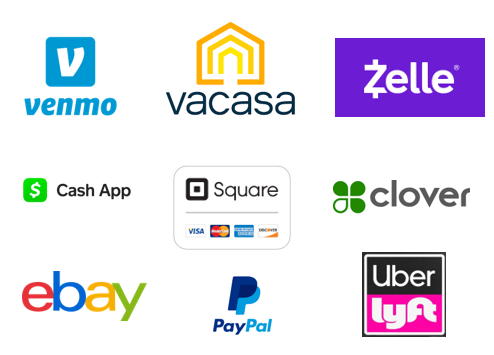The American Rescue Plan Act of 2021 significantly modified the reporting threshold associated with form 1099-K, Payment Card and Third-Party Network Transactions, from $20,000 AND more than 200 transactions per year down to annual gross payments exceeding $600, AND any number of transactions. The new rule was effective beginning with payment transactions settled after December 31 ,2021.
If in Tax-year 2022 you received any payment card transactions (e.g., debit, credit, or stored-value cards), the Payment Settlement Entity (PSE) will now issue you an annual 1099-K. The form 1099-K will be issued to the taxpayer by PSE’s such as Clover, Square, PayPal, Venmo, Zelle, and CashApp for any annual total income greater than $600.
